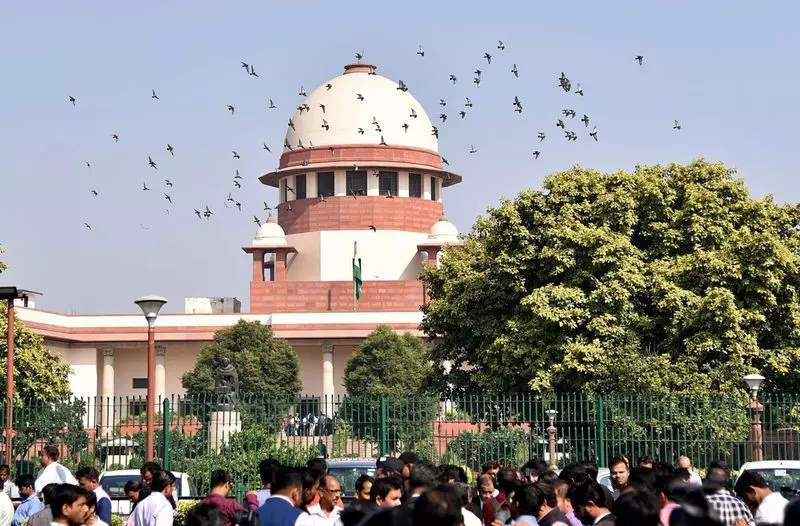
Review petitions filed in SC on verdict upholding Article 370 abrogation
text_fieldsNew Delhi: Several review petitions have been filed before the Supreme Court challenging its recent judgement that upheld the abrogation of Article 370 of the Constitution and bifurcating the state into two Union territories, Jammu &Kashmir and Ladakh.
Article 370, which was abrogated by the Centre on August 5, 2019, had conferred a special status to the erstwhile state of Jammu and Kashmir.
One of the review petitions was filed by Doctor Hussain, chief of the Jammu and Kashmir People’s Movement and Muzaffar Shah, president of the Jammu and Kashmir Awami National Conference.
“Article 370 cannot be killed,” Shah said, adding “We will debate the judgement in court.”
The Supreme Court last month upheld the validity of the president’s 2019 order repealing Article 370, calling it a “temporary provision”.
Twenty-three petitions had been filed before the apex court challenging the decision of the Union government to scrap J&K's special status and bifurcate the state into two Union territories.
The petitioners have maintained that Article 370 was not, in fact, a temporary provision but had assumed permanence after the dissolution of the Jammu and Kashmir Constituent Assembly in 1957.
In its judgement last month, the Supreme Court said that after Jammu and Kashmir’s accession to India in 1947, its internal sovereignty was not different from that of other states of the country.
Justice Khanna said in his judgement that Article 370 is an example of asymmetric federalism and not indicative of the sovereignty of Jammu and Kashmir. He also added that abrogation of Article 370 does not erode the federal structure of the Constitution.
 Also Read: ED summons NC president Farooq Abdullah to quiz in money laundering case
Also Read: ED summons NC president Farooq Abdullah to quiz in money laundering case























